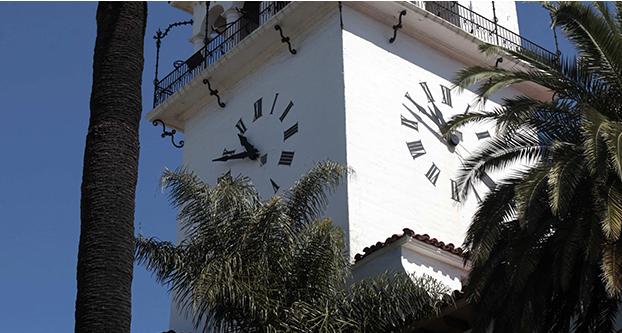On Sunday millions living on the West Coast dutifully set their clocks forward by one hour for the twice yearly Daylight Saving Time changes.
This custom may soon be a thing of the past, if voters approve a motion introduced by a state lawmaker.
The proposed law, AB 2496, was introduced by assemblyman Kansen Chu, a Democrat from San Jose. The intent of bill is for U.S. Standard Pacific Time as the standard time within the state during the entire year.
According to the Sacramento Bee, Chu decided to propose the end of time change due to suggestions from his constituents, who said it disrupted their schedules.
In addition to inconvenience, some scientific studies have shown a correlation between different health effects and the yearly time change, said Stephanie Annett, a registered dietitian at the Student Health and Counseling Center.
While the severity of health effects due to the time change are often debated, studies have found a correlation between some health problems and the time change, Annett said.
“Different studies have looked at the effects and they have found some things like more traffic accidents, more heart attacks, perhaps,” Annett said. “It’s a little inconclusive because some of the accidents also involved alcohol.”
Disordered sleep, whether due to a time change or any other factor, has serious effects on the mind’s ability to focus, Annett said.
The time change can temporarily throw off the body’s internal clock, also known as the circadian rhythm, Annett said.
“There’s rhythms within the human body, of mental and physiological changes,” Annett said. “And they follow a 24-hour cycle that is responding to light and darkness — so it’s not tied to the clock or anything.”
This cycle results in the release of hormones and other physiological changes that make us feel more alert due to sunlight and tired due to darkness, Annett said.
Daylight Saving Time first started in California 1949 after voters passed Proposition 12. In the text for the proposition, advocates for the time change highlighted the industrial productivity and public health benefits that would result from the extra hour of sunlight.
Fresno State junior and pre-nursing student Ana Castro said she appreciates the extra hour of sunlight that comes from Daylight Saving Time. “When it’s like 5 p.m. and it gets dark, how are you supposed to enjoy your day?”
Castro said the extra daylight hour was worth a couple days of having to adjust to the time change.
Electricity savings have also been highlighted by advocate of the time change.
However, an October 2008 study, which looked at Indiana after the entire state began observing Daylight Saving Time in 2006 found there to be evidence suggesting that the change resulted in additional energy being used.
“We estimate a cost of increased electricity bills to Indiana households of $9 million per year,” the study’s authors wrote.
The current time will revert back one hour on Nov. 6 at 2 a.m.






Tumbleweed7 • Nov 20, 2016 at 7:25 pm
Daylight saving time may have saved some electrical energy half a century ago but that advantage disappeared when fluorescent and now LED lights replaced incandescent bulbs Now the outdated practice is major annoyance to most people
Ending the twice a year ritual of resetting all the dozens of electronic clocks, timers, recorders, thermostats, coffee pots would save hours of wasted time and frustration, Abolish the law and rid ourselves of one more unnecessary, time wasting annoyance.